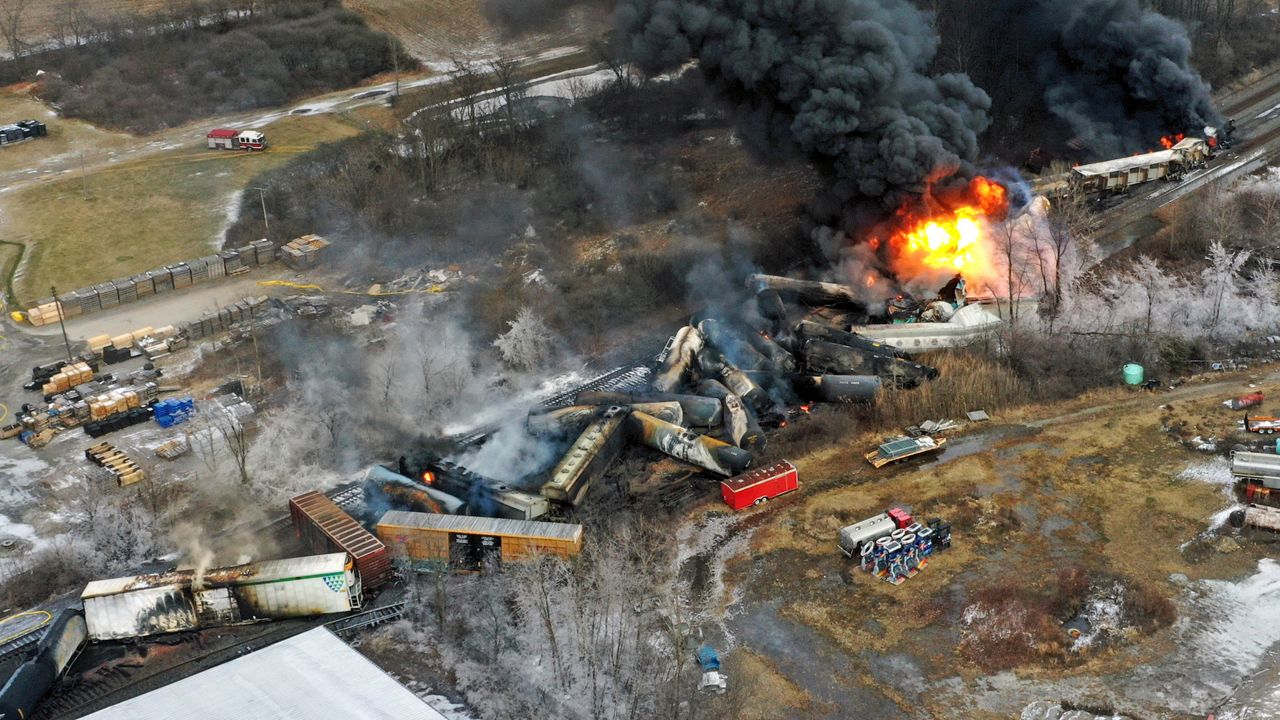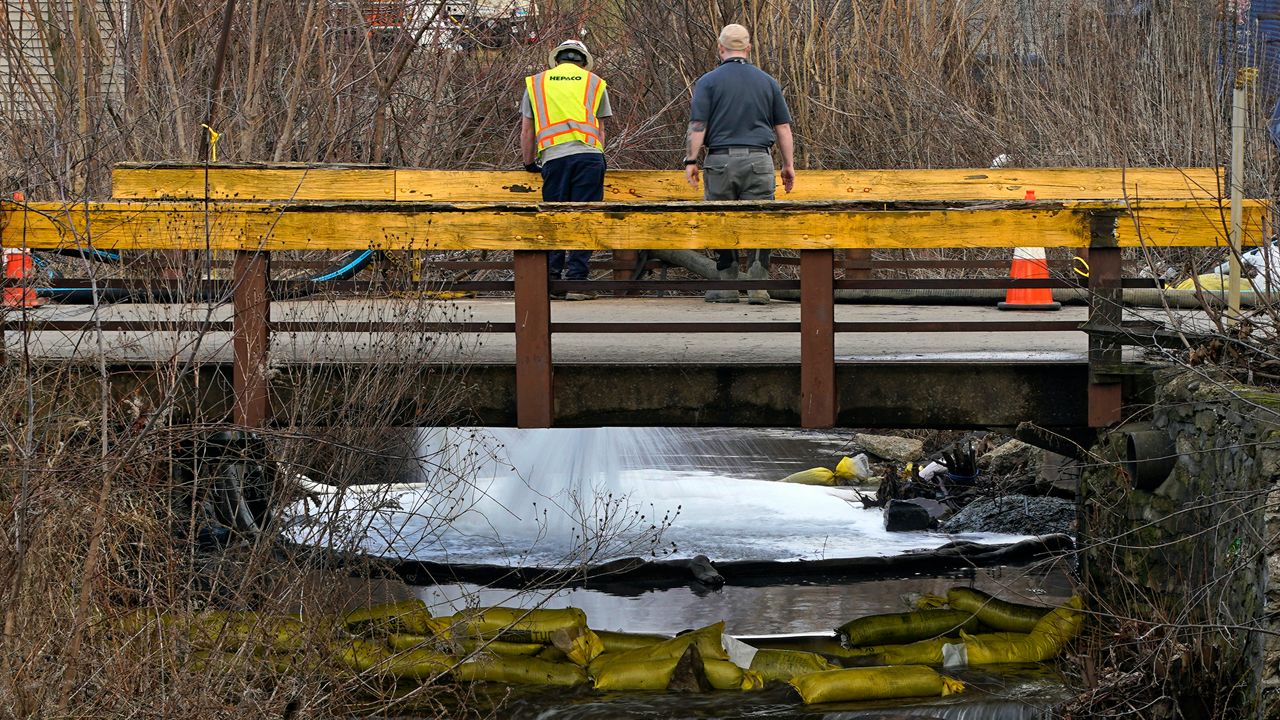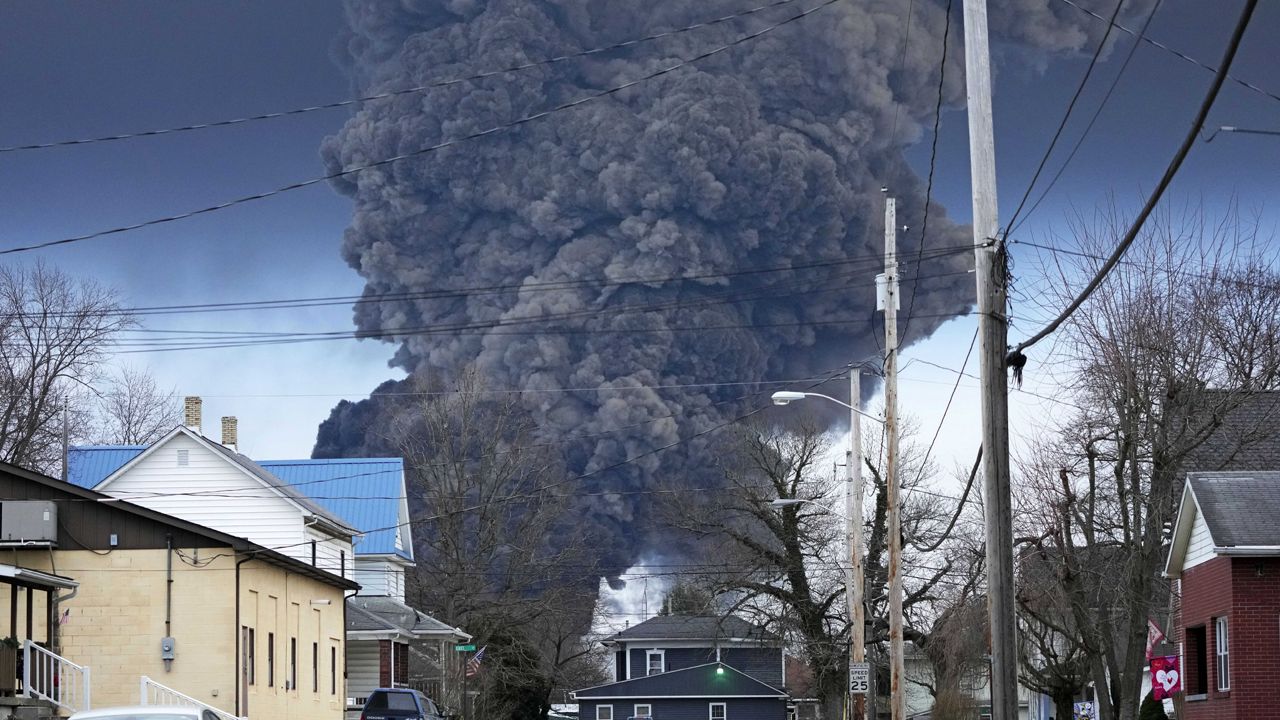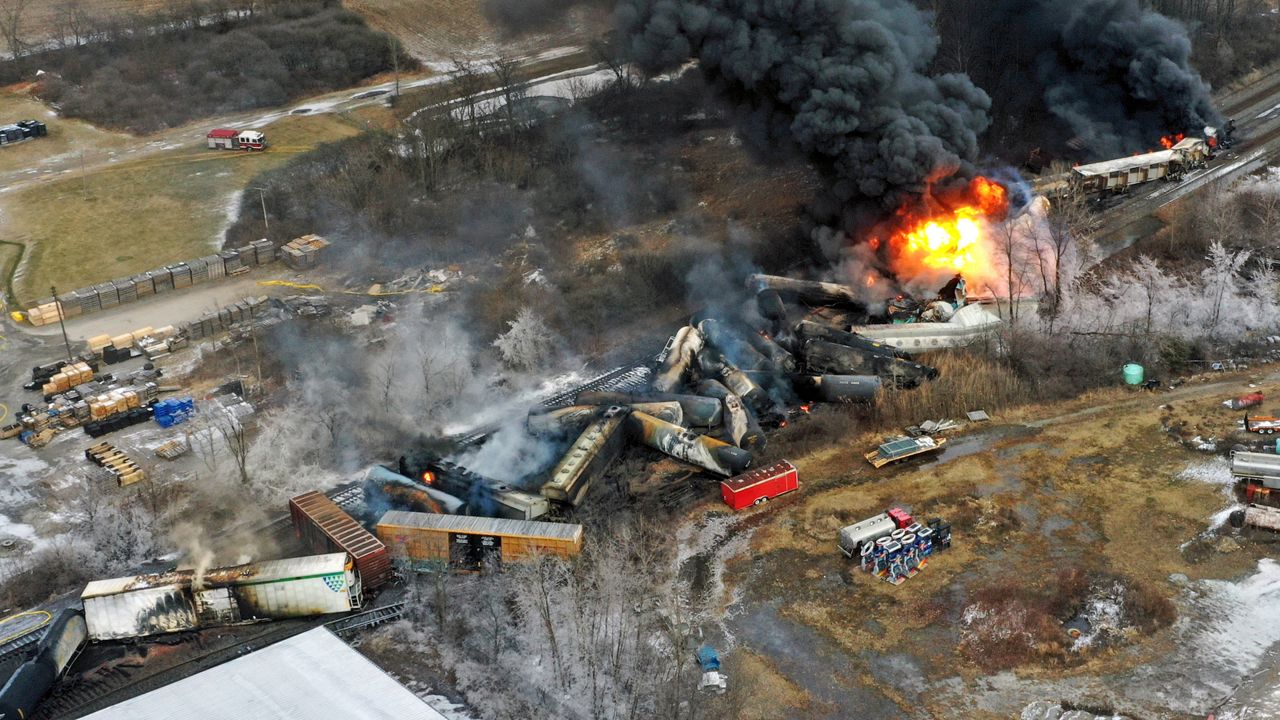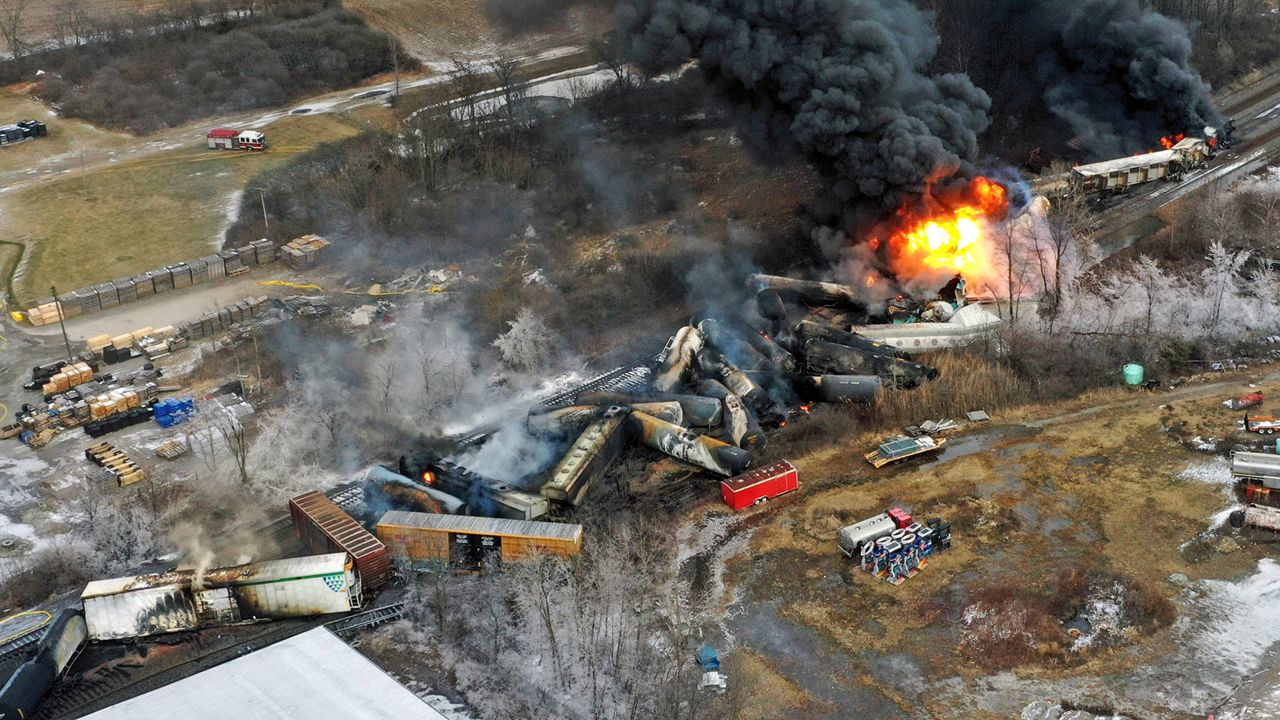OMAHA, Neb. (AP) — Norfolk Southern's costs related to the East Palestine derailment have grown to reach nearly $1 billion, but the railroad's service is improving and its insurance companies have started to pay their share of the cost of the crash in eastern Ohio early this year.
The Atlanta-based railroad on Wednesday reported a third-quarter profit of $478 million, or $2.10 per share, half of last year's $958 million, or $4.10 per share. The results were hurt by the derailment costs, a drop in its fuel surcharge revenue and flat volume.
Without the derailment costs, the railroad said it would have made $601 million, or $2.65 per share. Analysts surveyed by FactSet Research expected earnings per share of $2.64, on average.
While the cleanup from the February derailment continues, Norfolk Southern collected its first $25 million payment from its insurers. So far the railroad says costs from the accident amount to $966 million but will grow over time as the cleanup continues and it agrees to more settlements and fines. Norfolk Southern expects its insurance companies to eventually cover most of the cost of the derailment that forced thousands of people to evacuate their homes and left residents with worries about possible long-term health effects.
But the average speed of Norfolk Southern's trains increased during the quarter to 20.5 mph. That's up from last year's 19.1 mph average and this year's low point of 18.7 mph in the second quarter when one of its main tracks was still closed because of the derailment for most of the period. The average amount of time the railroad's trains spend inside its railyards also decreased to 23.2 hours from last year's 25.9 hours, and 28.1 hours in this year's second quarter.
“We are making smart investments in safe, reliable and resilient service,” CEO Alan Shaw said. “Although the macroeconomic environment of abnormally low volumes is an unwelcome headwind, it has not changed our approach .... The market will recover and we will be poised and leveraged to capture growth with strong incremental margins.”
The railroad's revenue declined 11% to $2.97 billion. That's just ahead of the $2.94 billion that Wall Street predicted.
Norfolk Southern now expects revenue to be down about 4% this year after fuel surcharge revenue fell $254 million in the third quarter.
Edward Jones analyst Jeff Windau said all the railroads have been under pressure because of declining fuel surcharges and weak volume amid all the economic uncertainty, but it appears as though shipping volume may have bottomed out during the third quarter. Norfolk Southern officials said their volume has improved over the past month to reach levels they haven't seen since the second quarter of 2022.
But the railroad's Chief Marketing Officer Ed Elkins said the current environment makes it hard to know exactly when or how much shipments will grow in different sectors.
“Economic uncertainty and geopolitical uncertainty are very high right now. And I think we see that in the headlines every single day,” Elkins said. “And it’s just something that we have to keep in mind.”
Norfolk Southern is one of the nation's largest railroads operating in the Eastern United States. Shares of the company were down about 4.5% in afternoon trading Wednesday after setting a new 52-week low.





